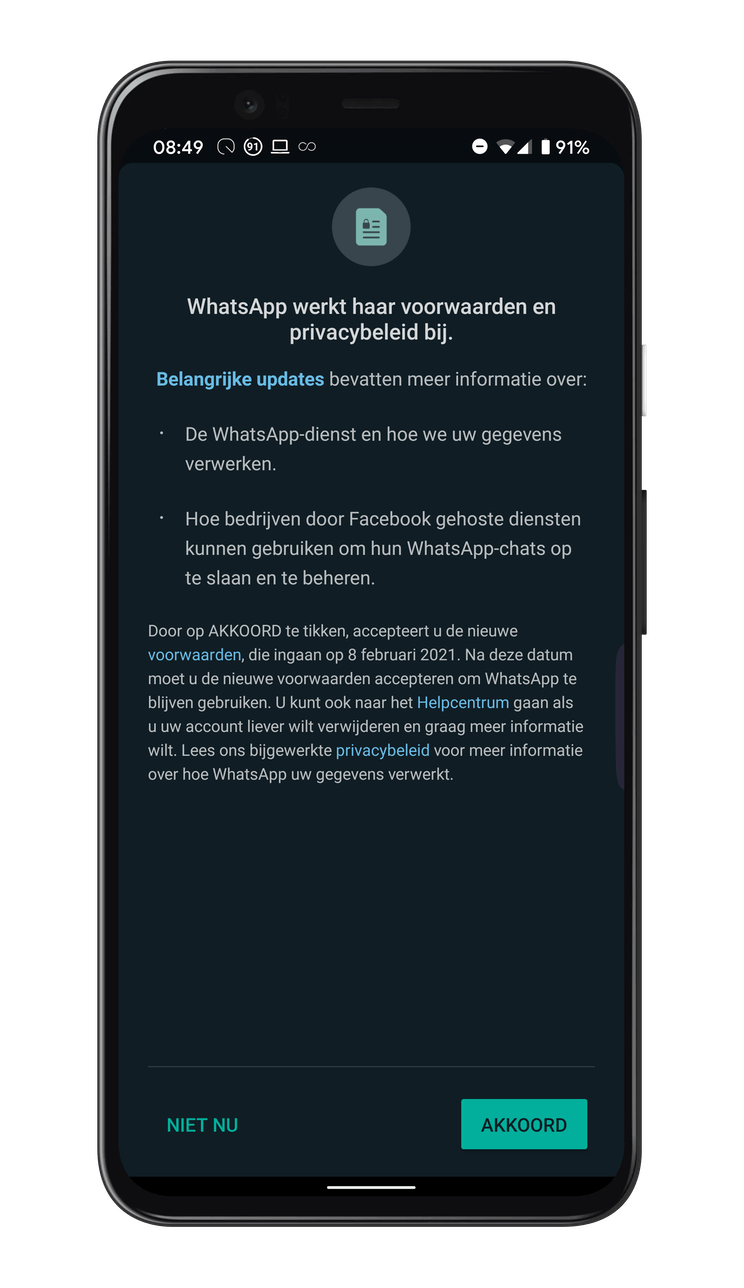Pirate Party: “The government is sad about knowledge about digitization”
“The privacy of citizens must be guaranteed.” That is one of the positions the Pirate Party stands for. As part of our theme week about privacy, we spoke with the party leader of the Pirate Party, Matthijs Pontier.
Who is Matthijs Pontier?
Matthijs Pontier (Amsterdam, April 15, 1985) is a scientist and activist. He has been active for the Pirate Party for years and was previously a party leader in the European elections. Since 2020 he has been the leader of the Pirate Party. In addition to his political positions, he has been a duo in the Amstel, Gooi and Vecht water board since 2015.
Pontier has sent artificial intelligence, psychology and cognitive science to the VU University Amsterdam. In 2011 he obtained his PhD for research in the field of emotional intelligence in computers and robots.
By Pirate Party Netherlands. – Pirate Party – for a free information society – European Parliament elections 2019 (Piratenfeest.nl)., CC0, Wikipedia
Big tech companies have too much power
Matthijs Pontier is convinced that too much power should never rest with a small group of people. This does not benefit innovation and ultimately the user, and also puts personal freedom under pressure: “More and more information about us is collected, stored in gigantic databases and used for questionable purposes.” Androidworld spoke to Pontier about privacy in this interview and in the AW Hangout. The latter will follow later this week on Androidworld!
AW: Google’s earnings model is therefore simple: sell ads. What are your biggest objections to this revenue model and privacy? Can the current tech giants adjust their earnings model in such a way that privacy is not compromised or is that a utopia?
“Google and other ad companies are now selling ads through Real-Time Bidding (RTB). This is a process by which publishers auction ad space in their apps or on their websites. In doing so, they share sensitive user data – including geolocation, device IDs, identification cookies and online behavior – with hundreds of different advertising companies. As a result, it is no longer possible to check who has your personal data. RTB is in violation of the General Data Protection Regulation (GDPR), but enforcement is impossible in this way. Especially with the current limited capacity of the Dutch Data Protection Authority.
RTB is an extensive underground system for collecting and trading personal data. It gives unreliable sources (‘fake news’) a revenue model at the expense of the free press, and reduces people to automatically generated profiles.
The Pirate Party wants to reform a healthy revenue model for the internet through targeted advertising, so that no personal data may be used in addition to the content itself and its categories, but only your approximate location and a general description of your device.
This will indeed not be good news for the current tech monopolists, but for consumers and European tech companies it is good news. In this way, innovative, privacy-friendly players get a fair chance. ”

AW: From our AW Poll Regarding privacy or functionality, it has been found that most AW readers opt for privacy when an app does its most important job well. Do you also see this trend in the Netherlands, or is ease of use still paramount for most Dutch people?
“I think AW visitors are at the forefront of this development, but privacy is also becoming increasingly important among the general public. There is a clear trend that privacy is becoming increasingly important. “Privacy is the new ‘green’ is a phrase that you have been hearing for a while. You also see more and more companies advertising their privacy-friendliness. Privacy will become increasingly important in the coming years.”
AW: All too often you hear: “I have nothing to hide,” in discussions about privacy. Does the party want to create more awareness about privacy among citizens and how does it want to do that? At the moment, government campaigns are mainly about online safety.
“I regularly give presentations and guest lectures about privacy, and fortunately I hear this slogan less and less. I think our campaigns, the Snowden revelations, the referendum campaign on the towing law and the allowance scandal, among other things, have contributed significantly to this.
In order to increase this topic, we want, among other things, that media literacy becomes a mandatory part of the curricula in education. In this education, and in government campaigns, it would be good to emphasize that privacy provides security. When companies and governments constantly spy on you in order to always manipulate you, it makes you less safe. Data regularly ends up on the street, so that criminals can use your personal data for identity fraud or WhatsApp fraud, for example. And you do not know which government we will have in the future, or which things you do that you do not think are wrong, might lead to problems abroad. For example, if you speak out publicly for LGBTI rights. ”

AW: The European Commission openly recommends the Signal messaging service. The Netherlands should also play an advisory role and make people aware of the privacy concerns surrounding apps such as Messenger and WhatsApp.
“That would certainly be wise. The first step should now be that the Dutch government no longer offers their services exclusively on WhatsApp and thus forces people to install WhatsApp if they want to use this service. Unfortunately, that is still the case too often. The European Commission should also cut WhatsApp and Messenger separately from Facebook, because Facebook has now become far too powerful. Monopolization in the tech market causes these companies to behave more and more arrogant and take consumer interests less and less seriously.”
AW: When the Netherlands wanted to build a notification app for COVID-19, the ‘Appathon’ went somewhat chaotic. Still, it was a great example of citizen participation where progress could be followed by everyone in Slack and GitHub. That has been different in other countries. Is the Netherlands not very well on the way in terms of transparency and do you want to set up more projects like this in which citizens participate?
“There is still a lot to improve in this area, but the process towards the corona app was a good example of how it should be done. One of the problems now is that tech companies often have an information advantage over the government and therefore sell bad projects and systems. As a result, we are now saddled with ICT fails often costing billions and causing huge delays. Many policy is therefore in the soup. Recently you can think of the source and contact research and test program that did not get off the ground due to limitations in ICT systems. And the GGD data breach, which means that many people no longer dare to cooperate. But of course also the allowance scandal, in which the Tax and Customs Administration labels innocent people as fraudsters based on data collection and opaque algorithms, with all the consequences that entails.
It would be good if the providers presented their proposal for a live stream with each ICT tender, and all Dutch people could point out errors in their proposal. Together with a Minister of Digital Affairs, a reinforced ICT Testing Office with more powers and binding advice, and a number of Pirates in the House of Representatives who can ask the right questions early, we can ensure that ICT projects in the government run better. . ”
AW: After all the problems at the government level that currently play a role, such as the benefits affair, ICT should play a greater role. Why has no minister of Digital Affairs and Data Management been appointed yet? Should councilors and commissioners also be appointed at municipal level who are specifically concerned with this subject? What is the current state of affairs with regard to digitization in the Upper and Lower Houses?
“In the Senate and the House of Representatives, it is currently very sad with knowledge about digitization. Lubach has shown that. The people who had knowledge of ICT will not be eligible for re-election in March. ICT specialists can only be found in eligible positions at the Pirate Party.
I currently have a seat in the Amstel Gooi en Vecht water board. Questions I asked about ICT policy and digital security of bridges and locks, for example, were often not answered properly. After some brave whistleblowers to Follow The Money [Platform voor onderzoeksjournalistiek, Nvdr.] stepped out, it turned out that a number of things I addressed did indeed pose a problem.
This situation could arise because ICT was not represented at the highest management level. Now Waternet is undergoing a complete IT reorganization, in which an IT director at the highest management level has a say and IT is no longer a neglected child, so that we want to prevent problems in the future. We also want to bring about this change in national politics, with a Minister of Digital Affairs and Data Management who participates in the Council of Ministers and who properly highlights the ICT component of each subject, so that ICT is no longer a neglected child at every Ministry. This would indeed be a good idea on a municipal level. ”

AW: What major smartphone privacy concerns do you foresee in the future? For example, I am very concerned about deepfakes. Is the Dutch citizen sufficiently armed against these problems or is a lot of information still needed? What steps still need to be taken and by whom?
“I find it a major problem in the further development of technologies to collect people’s personal data en masse. Governments and companies are already using this to manipulate people, such as in the Cambridge Analytica scandal, in which, among other things, the election of Trump and the Vote Leave campaign on Brexit sent various people targeted lying messages, often even completely contradictory to each other. .
Deep fakes and fake news are real problems indeed. Good information is needed for this, because the existence of fake news and deepfakes cannot be ruled out. And with far-reaching censorship from the government or from large tech companies, you are even further away from home. An obligation for large companies to place a warning on known deepfakes and fake news messages within the foreseeable future is a better solution. In addition, we want as said targeting to make the current earnings model based on ‘collecting data to manipulate people in a targeted manner’ impossible, so that earnings models that work better for society get a fair chance.
AW: What would you like to give the Dutch citizen in the field of privacy and Android?
“Check for each app whether there is a privacy-friendly open source alternative available and tell your environment about this. Think about what you post online and realize that once something is online, it is often impossible to delete.
And follow the Pirate Party and myself on social media and help us improve the government’s ICT policy. Take part in our giveaway and tell your family members, friends, acquaintances and vague acquaintances about the Pirate Party and our campaigns. And of course go and vote on March 17th! ”
Theme week privacy on Androidworld
This interview is dedicated to the theme week about privacy at Androidworld. Do you have a question about the topic we are discussing during this theme week or ideas or tips? Let us know in the comments below this article (also check our Android app). You can also email us via this e-mail address or leave a message on Facebook, Instagram and Twitter. You can also ask us questions via this Telegram group or this Signal group. Would you rather send one of the editors a tip? Then you can! Also keep an eye on our AW Hangout with Matthijs Pointier later this week!


